“Please expect a delay in delivery. I spent the last half hour at the bomb shelter. I will complete the job and deliver ASAP.”
Emails like this are not unusual in the inbox of Ruth Partington, founder and owner of Empower Translate. It would be hard to quibble over missed deadlines, given the circumstances. But conducting research in zones of conflict demands flexibility. These are turbulent times, and every geopolitical tremor sends a fresh shock wave over those on the ground.
The Global Peace Index 2024, published by the Institute for Economics and Peace, reported that there were 56 active conflicts – the highest number since the second world war – and 92 countries involved in conflicts beyond their borders. 2024 was, the report said, ‘the fifth consecutive year that global peacefulness has deteriorated.’
It’s not just conflict that is having a dramatic impact on the business of research. With political, social and economic conditions intractably unstable, organisations around the world are facing an unpredictable and high-risk trading environment.
Commissioning and conducting research is a complex undertaking involving decision makers and stakeholders from functions across the business. In addition, a single piece of strategic research can require an intricate network of specialist agencies. Each stage in the research process, each link in the supply chain, will be impacted by shifting political alliances, regional conflicts, and overnight switches in public opinion.
In such a precarious climate, Clifford Young, president of Ipsos Public Affairs in the US, is finding a growing demand from clients for faster turnaround of projects, especially tech-enabled forecasting and foresight.
“The world is generally more uncertain. Clients, therefore, are increasingly including political risk into their overall risk assessment of their business. They want to see the future better and known it faster. Ultimately, clients want to understand context and meaning behind their issues.”
Clifford Young, Ipsos
Not only is political risk baked into a business’ core operations, but the specifics of individual research projects require a high level of scrutiny when dealing with divisive themes or controversial clients, as seen with Stagwell’s recent work for the Israeli government.
The trickle-down influence from global issues to local impact is especially evident in the research work that Verian executes for governments and public sector institutions around the world.
“Public sector clients increasingly need research that connects international developments with domestic outcomes,” says Craig Watkins, chief executive at Verian UK. “There’s a shift from purely UK-focused studies to research that tracks how global instability affects migration, energy, trade and service demand at home.”
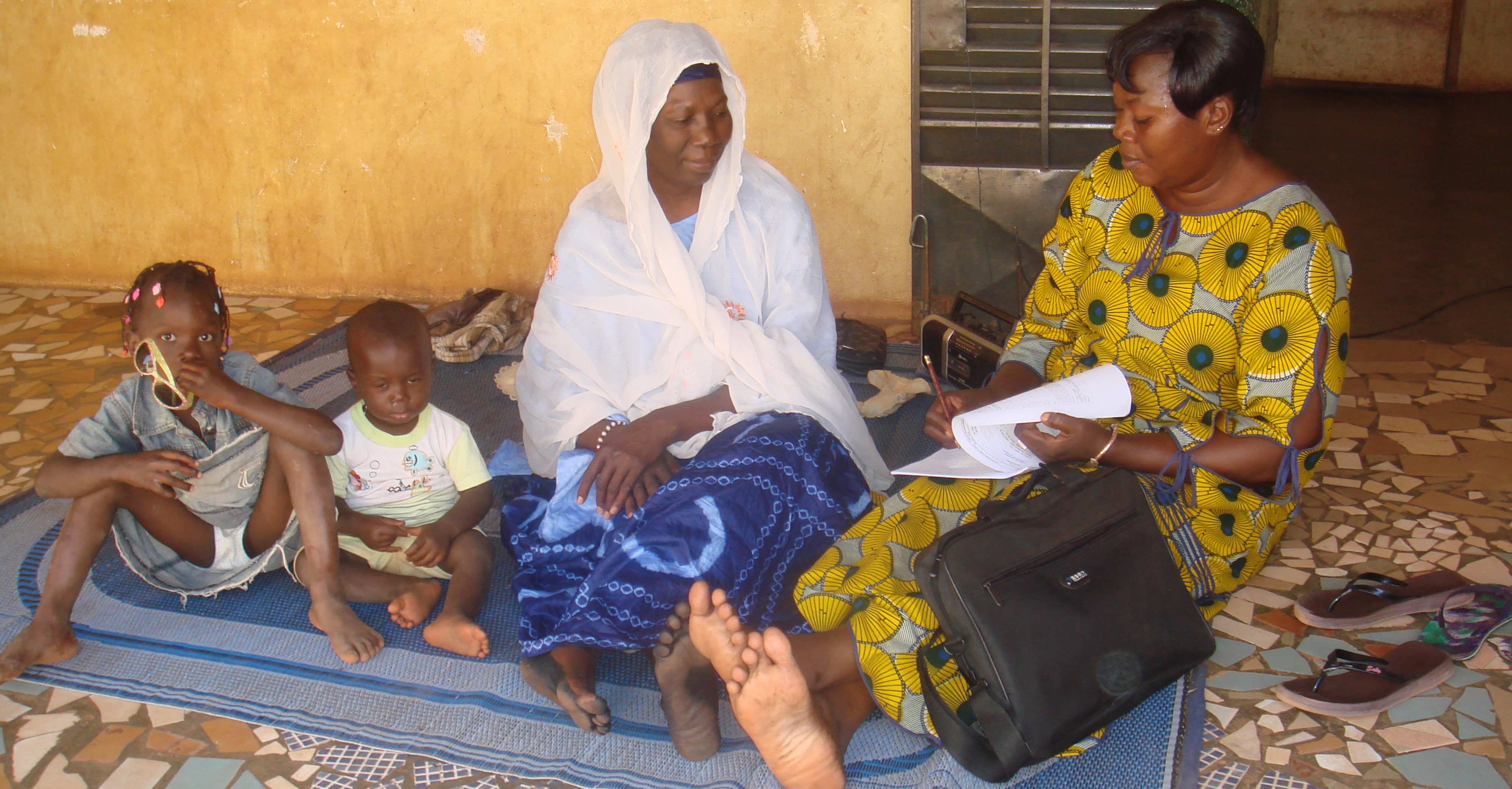
Fieldwork in Burkina Faso © ORB
Global issues, local needs
The type of research localisation work undertaken by Empower requires cultural sensitivity and hyper-localised language skills; this is to ensure that how market research is conducted and communicated reflects the culture of a very specific region. Think in terms of dialect rather than language. There are approximately 7,000 living languages in the world, but the number of dialects – local variations – is far greater.
Because the ebb and flow of language work reflects the vagaries and shifting alliances in world affairs, the pipeline for Empower’s work is difficult to anticipate, whether it supports insight designated for commercial or humanitarian outcomes.
Whereas 10 years ago, the industry might have more readily predicted an increase in requirements for research into certain markets, this has now become more difficult – and therefore more difficult to resource in advance.
According to an update issued by the International Monetary Fund (IMF) in July 2025, the current trade environment remains precarious, with ongoing trade uncertainty. In the summer of 2025, trade rifts saw some US brands boycotted and a decline in tourism into the US from Canada.
“We’re seeing unprecedented unpredictability in the markets where global brands want – and are able – to operate,” says Partington. “Especially for researchers, having access to on-the-ground, local resource is more important than ever.”
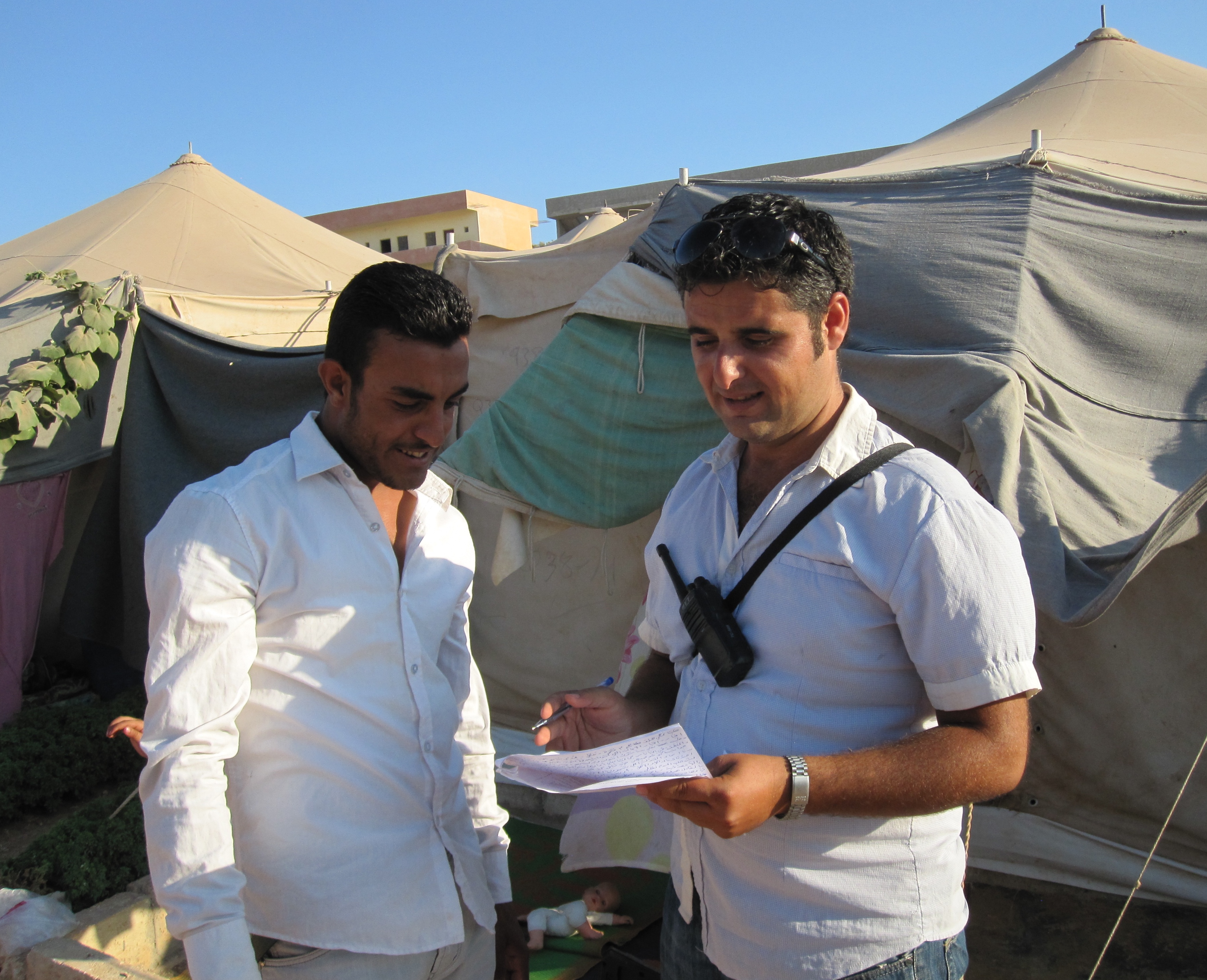
Fieldwork in Syria © ORB
The rise in conflict
One trend that is certain for Empower is an increase in work commissioned in response to zones of conflict and war. Partington says: “We have definitely seen an increase in requirements for both conflict-driven and conflict-impacted research. What we're being invited to do now is work with researchers on more humanitarian and philanthropic studies.”
The UNHCR reported in 2024 that 123.2 million people worldwide were forcibly displaced as a result of conflict.
The term ‘conflict’ needs to be defined. Partington offers a two-sided definition of conflict: “In research terms, when we talk about ‘conflict-driven’, we are talking about going into a war zone and talking to people, for example for humanitarian purposes, or to people displaced, for example, refugees in the UK.”
By contrast, ‘conflict-impacted’ is where research is impacted ‘indirectly’ by conflict.
Translating English language surveys into a local language or dialect, or performing live interpretation during interviews and home visits, is incredibly nuanced – even more so in environments where misunderstandings can have real-world implications.
“The way in which you word questions and the way in which they're translated is absolutely critical,” says Johnny Heald, UK chief executive, ORB International. He uses the word ‘jihad’ to illustrate how words can have multiple, very different meanings. “Many people think it only relates only to suicide bombers. What you and I understand to be the meaning of the word might be very different. Your ‘jihad’ might be you go and clean the mosque on Friday because that’s your job.” In fact, ‘jihad’ is a common word used to describe any number of charitable efforts a Muslim may undertake to support their community and pursue a virtuous life.
Life on the ground
Running an effective research localisation business like Empower requires a careful balance between achieving something that is culturally sensitive and empathetic (especially considering the traumatic circumstances in which people may find themselves) and yet highly practical: how can Empower protect and pay their moderators where there are no banks, no internet and no infrastructure?
Within these constricted circumstances, the ability to put people on the ground in any part of the world and at short notice is a key differentiator for agencies. North Korea aside, there’s rarely a community that cannot be reached, says Heald, whether it’s running focus groups in Gaza or talking to defected Isis fighters. Where access on the ground really is impossible, talking to displaced people can be used as a proxy.
“There are books written, films made about Coca-Cola’s network globally or DHL’s network – the ability to get a package practically anywhere in the world that quickly. The fact that the research industry can get into some of the most contested spaces in the world, within a week or a day, is something we don’t dial up enough as an industry.”
Johnny Heald, ORB
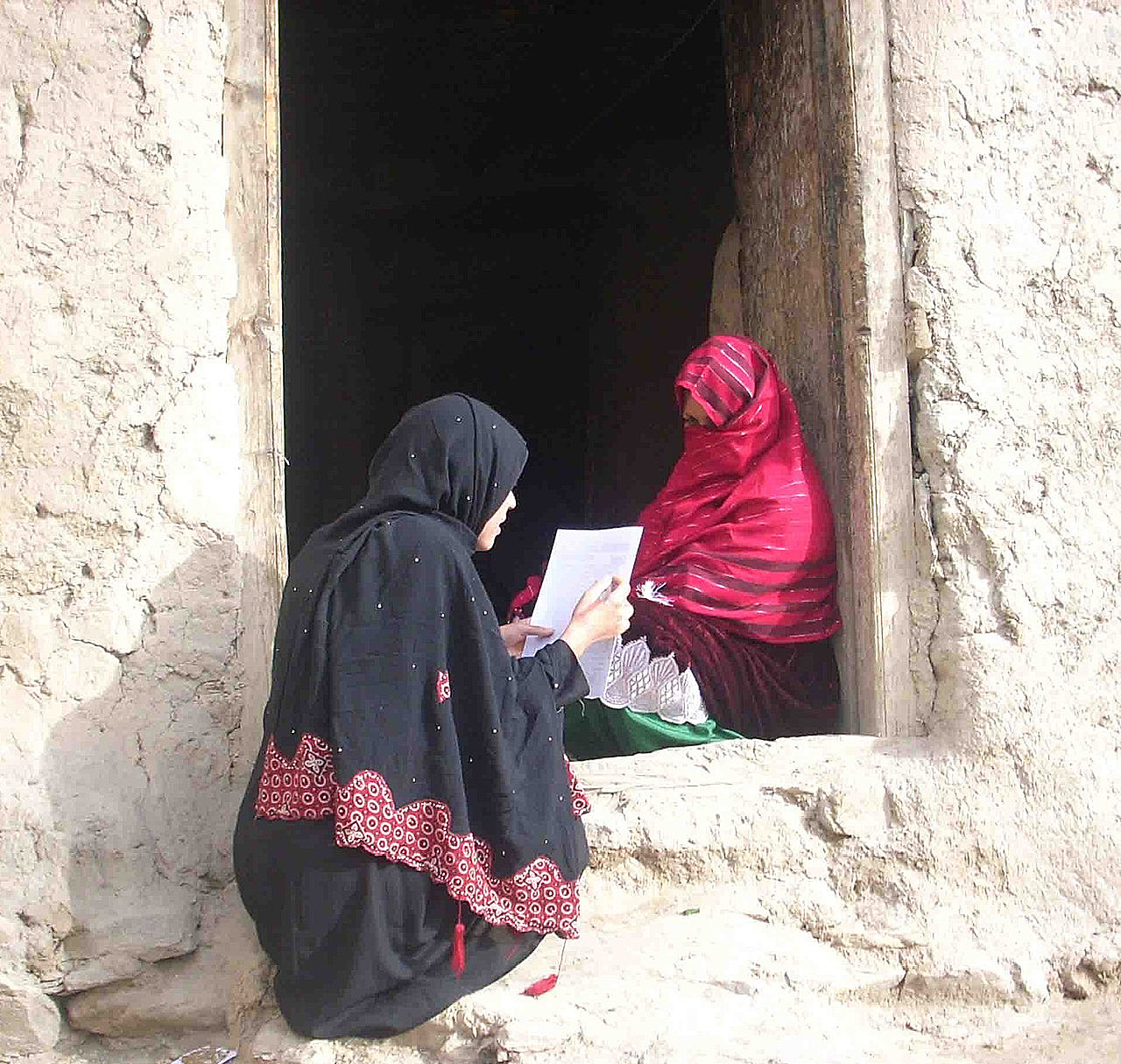
Fieldwork in Afghanistan © ORB
Running the risks
Safeguarding is a priority for employers. Tragically, the impact on employees can extend well beyond post-traumatic stress disorder (PTSD). The fate of local workers in Afghanistan, including interpreters and fixers for the US military, who were left behind at the mercy of the Taliban, raised ethical questions around the responsibility of employers (in that instance, foreign governments).
Since 2009, an estimated 300 interpreters working with the US military in Afghanistan have died while seeking a US visa, and the UK’s recent data breach implicated not just employees but their extended families.
It is customary to run detailed risk assessments for any country or environment before work starts. As well as physical risk, ORB will run cognitive testing of all research materials to understand how respondents will interpret questions.
“Interviewers will say ‘I cannot ask that question’,” says Heald. “So, for example, I was in an Islamic republic in West Africa and the client wanted to ask a question about LGBTQI+ issues and everyone in the training session said there was no way you could ask that question. 95% of what we do is face-to-face and random probability sampling, and we won't send people into a potentially harmful situation. So, we'll just take that question out.”
However, in a war zone, no amount of due diligence is completely fool proof, and when three interviewers working for ORB were kidnapped and murdered, Heald couldn’t be sure of the motive: ”We didn't know whether or not they were being targeted for what they did, or whether it was random. We stopped working for three months. It was the interviewers in the end, who kept coming back saying: ‘Please, please, we need to start again, we need to put food on the table.’ So, we started again.”
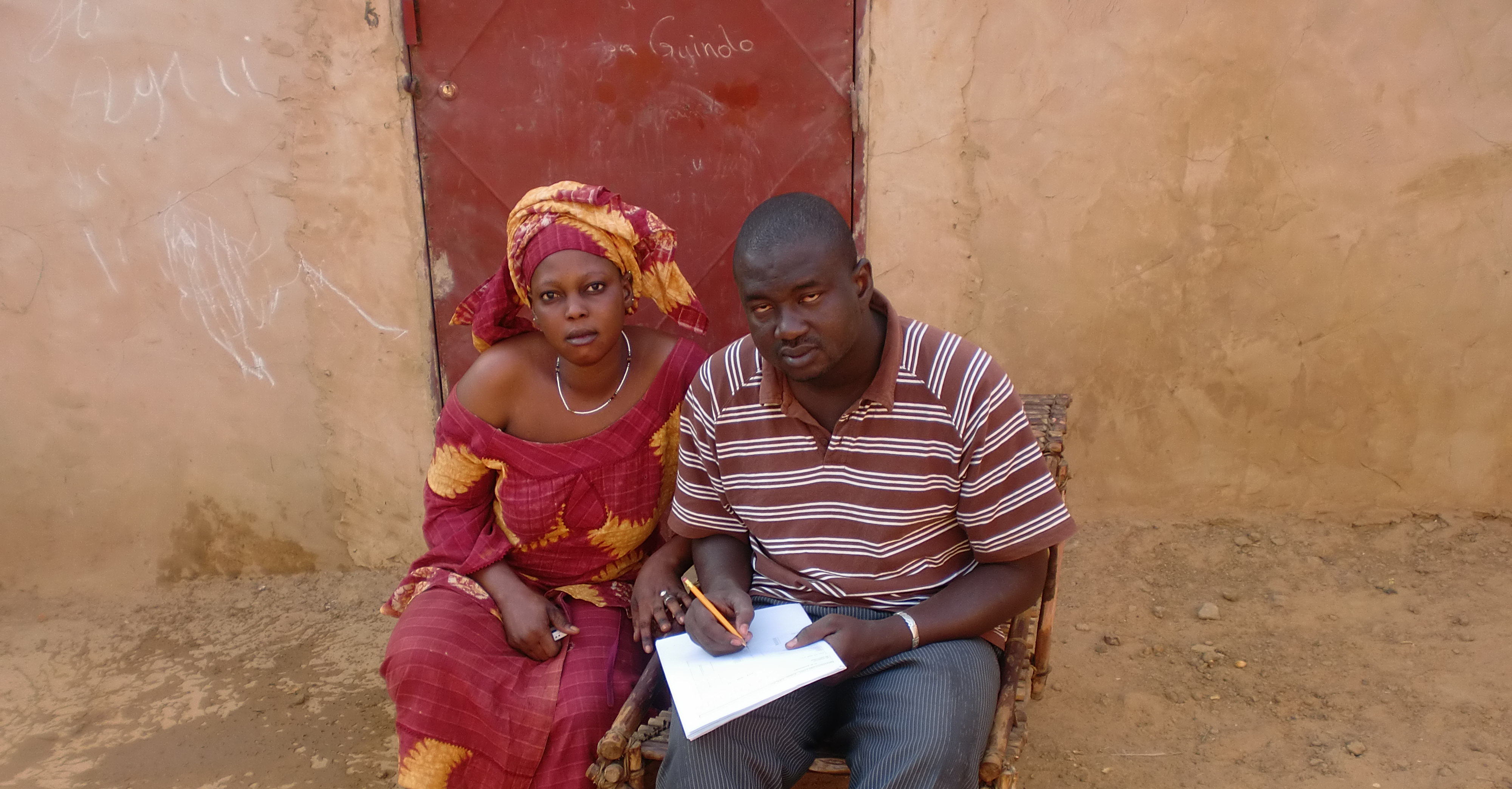
Fieldwork in Nigeria © ORB
Building trust
As we have seen, the languages in demand at any one time reflect the geopolitics of war and regional instability, and the subsequent displacement of people.
For Empower, more of today’s work comes via government agencies, NGOs, and philanthropic or humanitarian organisations. What Partington describes as ‘rare language’ work is on the increase as more people from every corner of the globe are being displaced and the need for ‘niche’ language services becomes more acute.
Another international agency, Ronin, has worked on a resettlement program over the last nine years, interviewing refugees in the US – a typical example of what Partington earlier defines as ‘conflict-impacted’ research. For Ronin’s project, Armenian features on their list of language requirements in 2023, but it’s missing in 2025, and instead there’s a new requirement for Kibembe – a Bantu language from the Democratic Republic of the Congo.
Simon Glanville, managing director at Ronin, says it is non-negotiable that all telephone interviews with refugees in the US are conducted in the participants’ native language.
“Apart from maybe their immediate family, they probably don't get the opportunity to be able to talk now that they're in the US to people who are from their region or from their country. So, there’s a bit of an empathy there and that’s what we're trying to build.”
Simon Glanville, Ronin
The impact of being heard, listened to, cannot be underestimated, especially for people whose existence is under threat.
“Response rates are actually surprisingly high because people are almost delighted to be able to express an opinion,” says Heald. “I've been in focus groups where people start crying. It’s like a therapy session.”
Winning the confidence of participants is never more important than in environments where people are likely to be mistrustful of strangers asking questions.
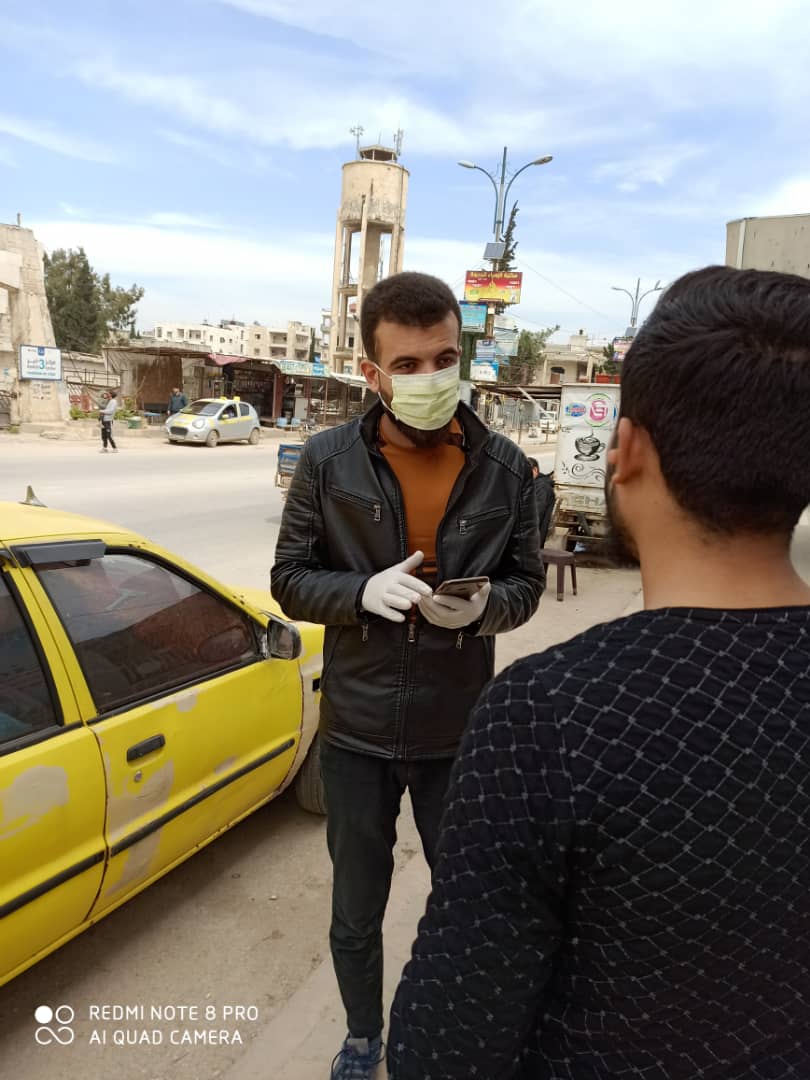
Fieldwork in Syria © ORB
The changing battlefront
As well as these continually evolving language requirements, at ORB, Heald has seen a fundamental change in the topics being explored in research. Once again, this is reflective of the real-world changes in conflict and warfare, and in particular, the new technological battlefront; that of disinformation.
“There is absolutely a war going on in the information environment right now,” says Heald. “Russia is very adept at communications and disseminating, whether it’s through RT very openly, or through bot farms."
Identifying how people access information and what they are absorbing is critical to understanding the experiences of those impacted and driven by conflict. Information distributed online can permeate even the most remote environments and its influence can be immediate and visceral.
“We need to understand that anything that is connected to the internet should be considered a potential weapon of war,” says Partington. “If you're connected, you can be hacked.”
With war increasingly taking place in the tech space as much as the physical one, protecting data is paramount.
“Public sector clients increasingly want stress-tested evidence—scenario modelling that prepares them for cyberattacks, global energy shocks, or disinformation campaigns before they happen.”
Craig Watkins, Verian
The interpreter – invisible, indispensable…
Interpreters rarely make the headlines; at the highest level they enable global leaders to communicate fluidly with one another so that they can sign treaties and agreements around trade, world affairs and wars.
But sometimes interpreters do make the headlines.
Ukrainian Kateryna Rietz-Rakul is one of only two people in the world able to perform simultaneous interpretation between English, German, Russian and Ukrainian.
In 2022, Rietz-Rakul herself became the focus of media attention when she broke down during a live broadcast as she interpreted a speech made by Ukraine’s president Volodymyr Zelenskyy at the start of the Russia-Ukraine war. Her sobs were clearly audible as she echoed the president’s impassioned words. Rietz-Rakul is a professional of world renown, and while such displays of emotion are unusual, she certainly isn’t the first interpreter to do so.
In 2018, Democrats called for Marina Gross, an interpreter who sat in on a private conversation between Donald Trump and Vladimir Putin, to testify in court. The controversy circled around what Trump did or didn’t say regarding Russian interference in the 2016 US elections. To subpoena an interpreter would have been unprecedented, breaking the non-binding code of ethics that guarantees client confidentiality.
The role of the interpreter is extremely complex, never more so than in areas of conflict. Often referred to as ‘positionality’, the loyalties of the interpreter or – as we have seen in this report – anyone conducting interviews and fieldwork, are often under suspicion. Are they from within the community they are talking to, or are they a government stooge acting as an informant?
But without interpreters – and you can extend this to anyone providing language services – none of this would happen, from the daily humanitarian and military operations on the ground, to televised negotiations between world leaders.
Fieldwork in Yemen © ORB
Language data inequality
The advent of artificial intelligence (AI) has accelerated the development of technical warfare. But aside from weaponry, there are unintended consequences of embedding AI into our everyday systems which exacerbate the marginalisation of communities, especially those impacted by conflict.
Generative AI also poses a double risk in that it is biased both towards data emanating from WEIRD societies (Western, Educated, Industrialized, Rich, and Democratic) and with the dominant written language being English (British and American).
The large language models (LLMs) that drive generative AI solutions, for example ChatGPT, have been programmed with a WEIRD psychology, which is not representative of the global population.
This was demonstrated by research from Harvard University which showed the more distant a country is culturally from the US, the lower the correspondence between AI responses and human responses. This is especially pertinent given the enthusiastic adoption of synthetic data by the research sector.
Partington underlines the importance of ‘language data equality’ – without which many global communities will not have a voice.
“It’s a vicious cycle of language data inequality. Zones which have been impoverished technologically can become even more so by conflict, which means the tech is not being fed their language. This impacts the time and cost required to find out what’s really happening on the ground for those people, which in turn diminishes the incentive to invest.”
Ruth Partington, Empower
Representation and bias are well documented weaknesses of any AI. But are there positive aspects to AI that can help clients achieve their objectives?
Glanville says yes, with limitations. AI references historic data that is unlikely to reflect the unique and shifting experiences of a diverse spread of under-represented people and communities.
In reference to Ronin’s project interviewing refugees in the US, Glanville says: “Ultimately, the kind of the interviews we’re doing, particularly on a job like this, are really what the project is all about. You can't really automate that if it feels out of step with somebody being comfortable in an interview situation.
“I've no doubt that over the years things may change a little bit, but at the moment, we know that a properly administered questionnaire will often yield things that no one would really expect someone would say. And that gets to the heart of what market research really is.”
Regardless of whether a research supplier is working in a zone of conflict or not, quality is now the watchword for the entire sector. Data is under vigorous scrutiny from clients who are much savvier than they may have been in the past when ‘big’ was enough, with concern around the authenticity of respondents and widespread survey fraud.
“As an industry, we need to be collecting really good quality data that people feel the value of having to pay that extra money for,” says Glanville, who also sits on the Global Data Quality steering group.
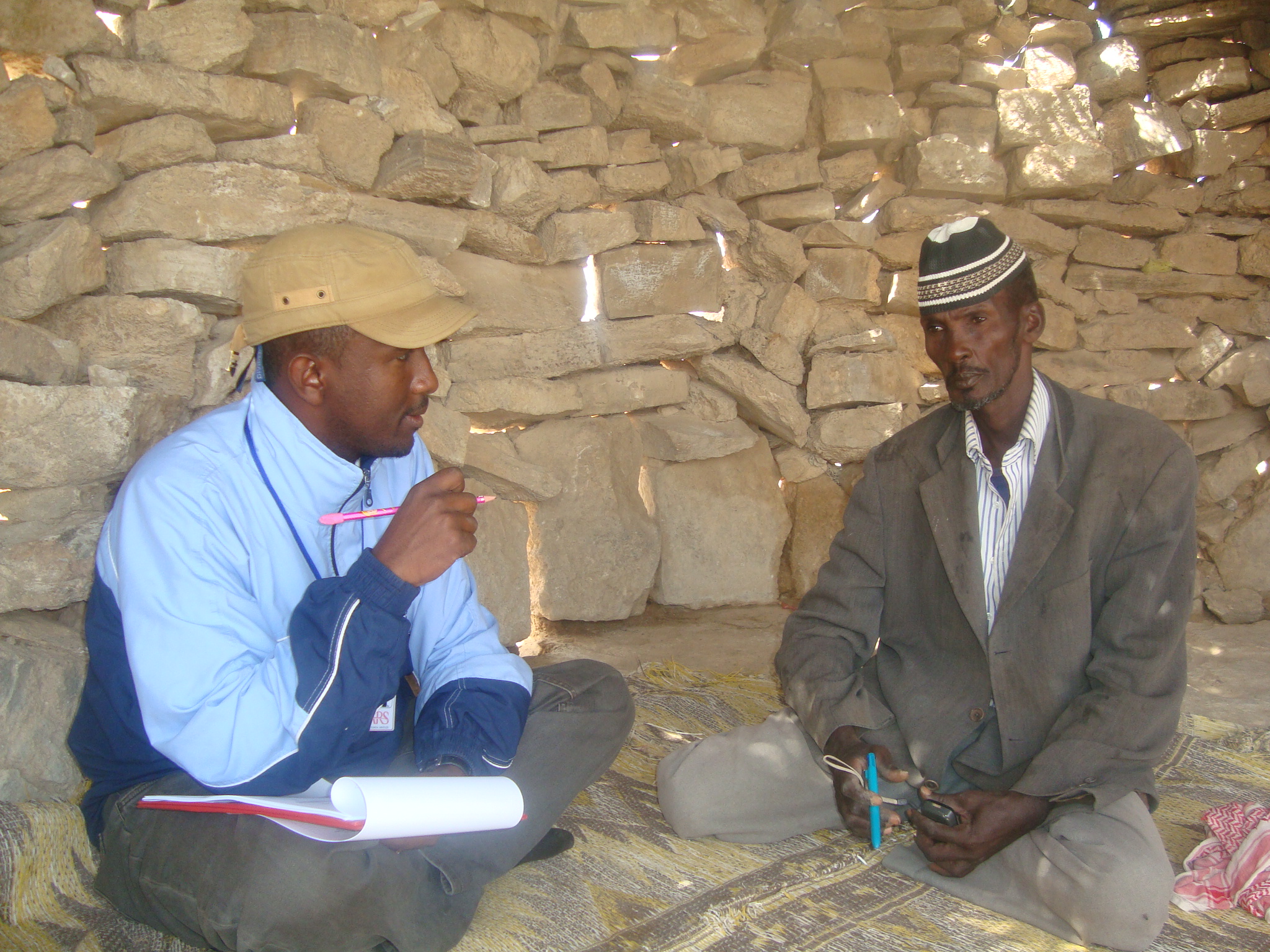
Fieldwork in Mali © ORB
The future of insight
When providing localisation and language services in such a sensitive and high stakes environment – an area of conflict – there is little if any margin for error. Missteps can have fatal consequences; or at the least offend or confuse, and invalidate research. Many agencies at the forefront of localisation are conducting work that above all else supports life-changing humanitarian outcomes for millions of people around the world.
But the bigger picture is how the issues discussed in this report reflect the wider challenges to the global research sector. War and conflict, global politics and public sentiment have a direct and often immediate impact on the daily work of all researchers, regardless of speciality or brand. The tectonic plates underpinning world politics lurch in a new direction, a tsunami of opinion is unleashed, and whole markets are disrupted, all in the time it takes to share a single social media post.
Watkins sums up the position not just for Verian’s public sector clients, but the future of all insight work: “As geopolitics moves faster, our insight systems need to move faster too…The future of [public sector] research will be defined by agility, global awareness, and the ability to connect macro risk with local response.”
Global research in a conflicted digital world
By Paul Weallens, CEO, Empower
It seems the world is taking VUCA (volatility, uncertainty, complexity, and ambiguity) to a whole new level.
Conflict is at its highest since the second world war, and more global than ever. Even brands and researchers pursuing “business as usual” are disrupted by political boycotts, shifting regulations, and fragile inter-market relations.
The difference between World War II and today, however, is that we are online.
Take Channel 4’s “The Undeclared War”, which described a new reality where – despite no formal declaration of conflict – cyber vulnerabilities are being weaponised by nation states against their adversaries to undermine business security, disrupt infrastructure, and expose sensitive data. No sector is immune. Even non-strategic media targets are vectors for data compromise: in mid-2024, Russian-linked hacker group BlackSuit targeted Japanese media firms Kadokawa and Niconico and leaked 254,241 users’ data.
If you’re somewhere in the research chain, you’d be forgiven for thinking your agency isn’t a target. Yet throughout 2024, one third of reported cyber attacks stemmed from third party breaches, revealing the infiltration of global brands through their supply chains as a prominent hacker tactic. For market research agencies with global clients, this makes every partner in the research chain a potential entry point, from survey platforms to panel providers and localisation agencies. When your clients are global brands, their trust depends on the security of every link in your chain.
The risks multiply in markets where you collect sensitive consumer or attitudinal data – because sometimes, the call is coming from inside the house. In countries like China, authorities hold broad rights to access data gathered on their soil, raising profound ethical questions when research touches on political dissent or personal identity.
Of course, our industry is not new to VUCA environments. We already adapt to political volatility and the cultural context shaping insights. But in today’s environment, global research requires more:
- True localisation: from the start to ensure that language and cultural context are right, so insights are reliable and participants safe
- Robust cyber resilience: treating security not as an add-on, but as a cornerstone of insight itself
- Trusted partners: recognising that every provider in the chain is a guardian of participant trust and safety, and client value.
Today, however, market research is not merely a provider of insight. It is the custodian of secure, cross-border intelligence.
In a world of digital warfare, confidence belongs to those who recognise that security and localisation are inseparable.



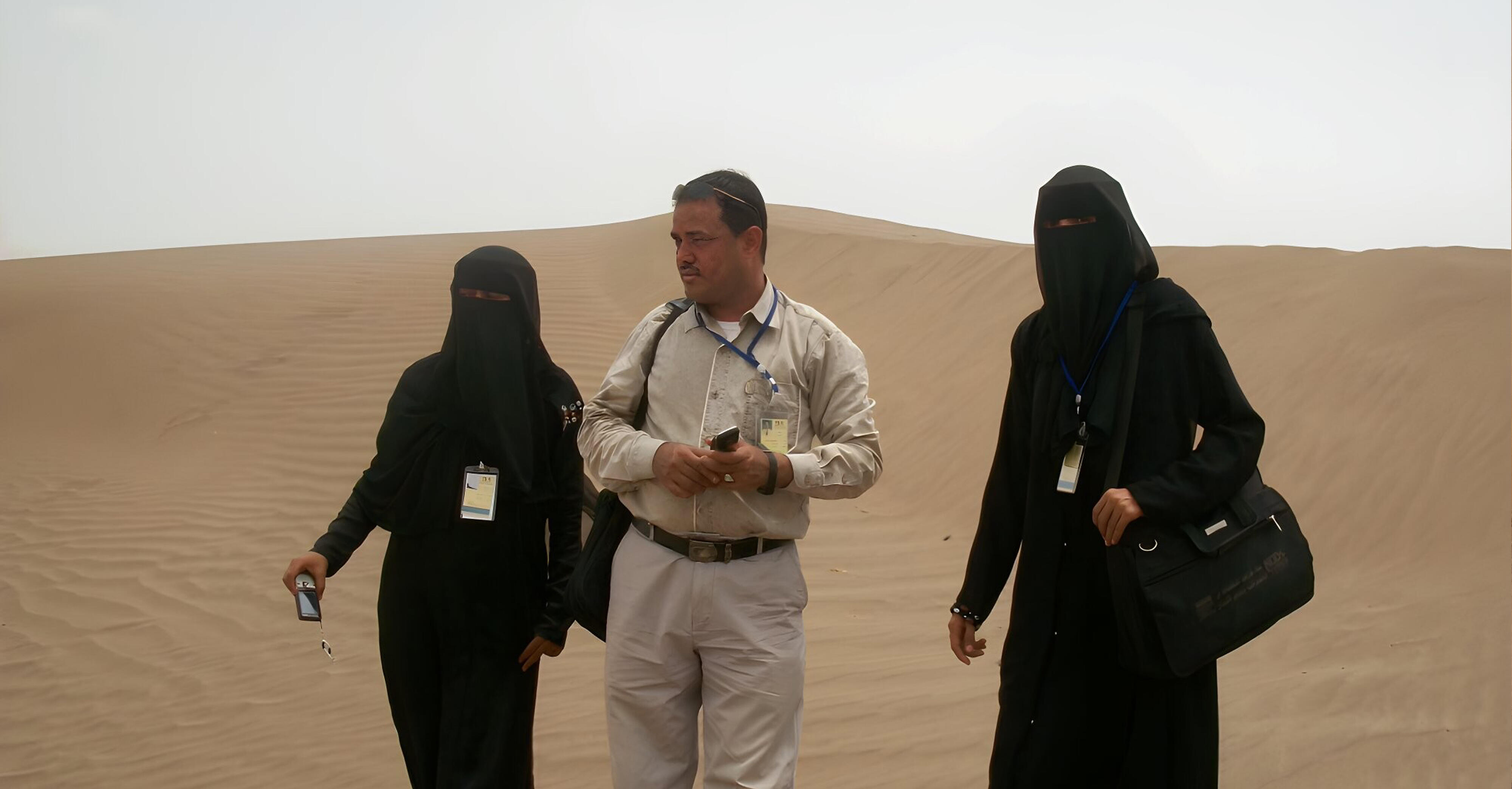


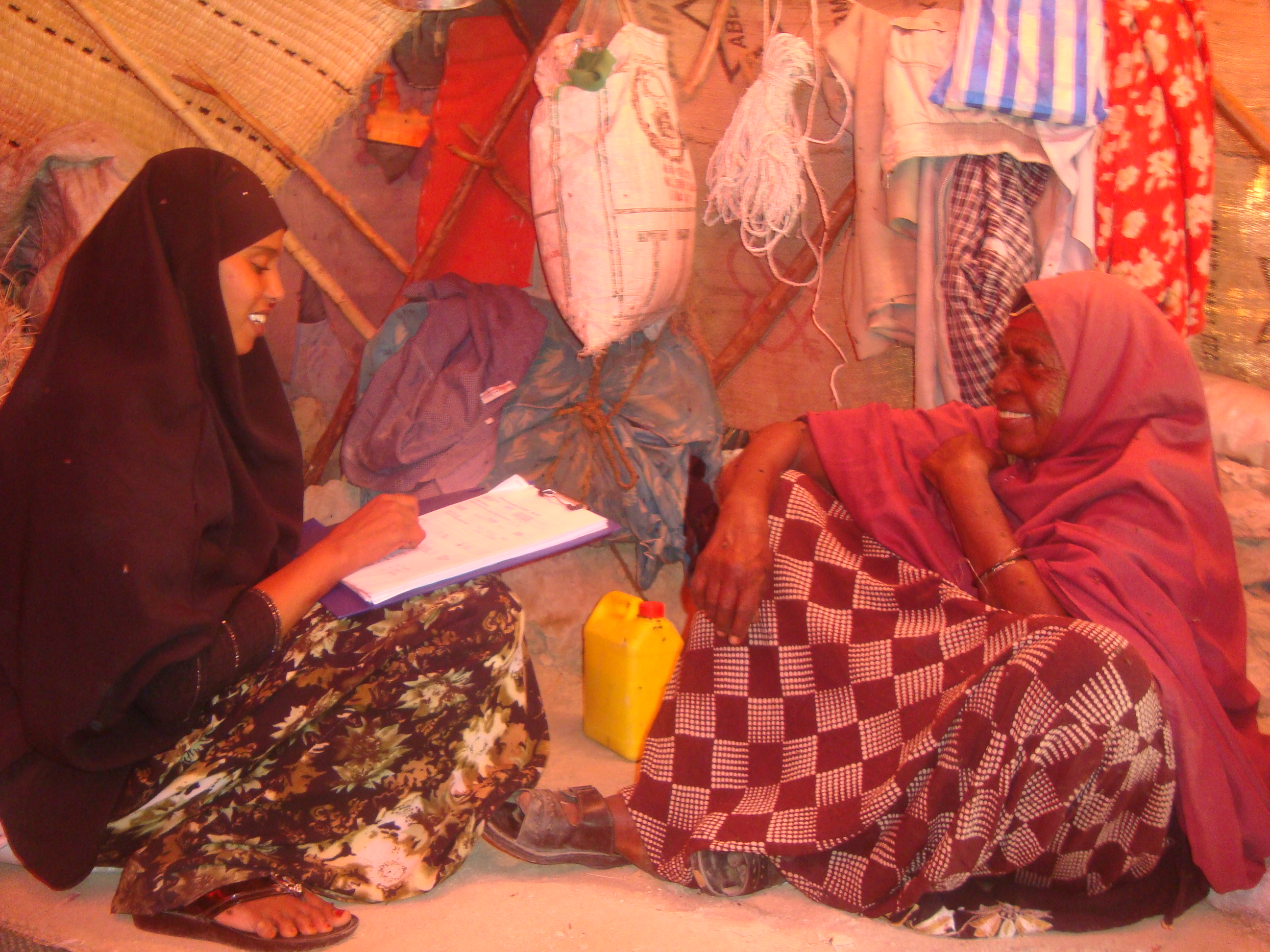









0 Comments